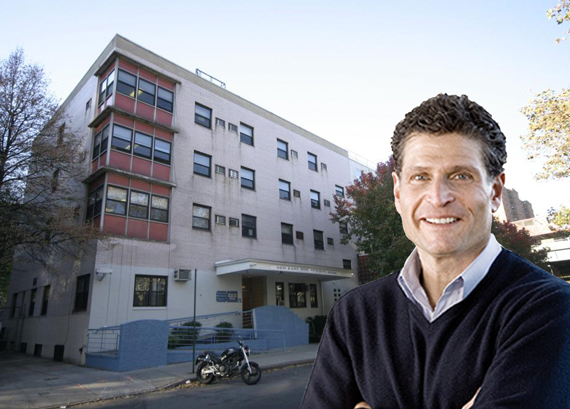Trending
Peter Fine lobs lawsuit seeking approval of $13M LES nursing home/synagogue deal
He agreed to purchase the building at 25 Bialystoker in 2014

After more than three years of controversy-fueled delays, developer Peter Fine still can’t finalize his $13 million purchase of a Lower East Side nursing home that includes worship space for a synagogue.
Fine filed a lawsuit in State Supreme Court on Thursday imploring the court to approve the deal, which has been held up by objections from the synagogue’s members, court orders and a related federal investigation.
Virtually every facet of this sale is a point of contention, especially how proceeds of the sale will be distributed. Fine reached an agreement with Rabbi Samuel Aschkenazi — president of the Home of the Sages of Israel — in 2014 to purchase 25 Bialystoker Place for $13 million. But some congregants of the Home of the Sages claim that they were not consulted about the sale and that the rabbi and his “shadow board” finagled a deal that only benefits him. The congregants allege that $3 million of the sale proceeds would unfairly be dedicated to the rabbi’s other synagogue in Queens, while the remaining $10 million would be sent to a right-wing sect in Israel.
A State Supreme Court judge halted the sale in October 2015 in another lawsuit brought by the congregants. In March 2016, U.S. Attorney Preet Bharara reportedly started investigating the rabbi. Aschkenazi was confronted by federal agents shortly after testifying in the civil case, the New York Post reported at the time. The status of that probe is not immediately clear.
David Jaroslawicz, an attorney who says he represents the congregants, noted on Thursday that another complaint brought by Aschkenazi is ongoing. He said he hasn’t seen the newest complaint, but quipped that Fine is simply “judge shopping.”
“This thing has such a foul stench and that’s why it hasn’t yet been approved by the courts,” he said. “This thing was a scam from the beginning to the end.”
Fine and his attorney did not immediately return messages seeking comment.
In the latest lawsuit, Fine contends that those who object to the sale, including landlord Baruch Singer, only use an auxiliary room on the property that makes up roughly five percent of the building’s 26,000 square feet. The building is primarily used as a for-profit secular nursing home, the lawsuit states. Fine also alleges that Singer is an interloper because he has his eyes on developing the property himself.
The developer asserts that the State Attorney General’s Office “all but invited” the sale to be approved and for the sales proceeds to be temporarily held in escrow until the issues of distribution are sorted out. In the rabbi’s lawsuit, the Attorney General’s Office sent a letter to Judge Geoffrey Wright in 2015 saying that it had “no objection” to the deal. The office also asked the court to assure that Fine maintain a wheelchair accessible synagogue space at the property.




